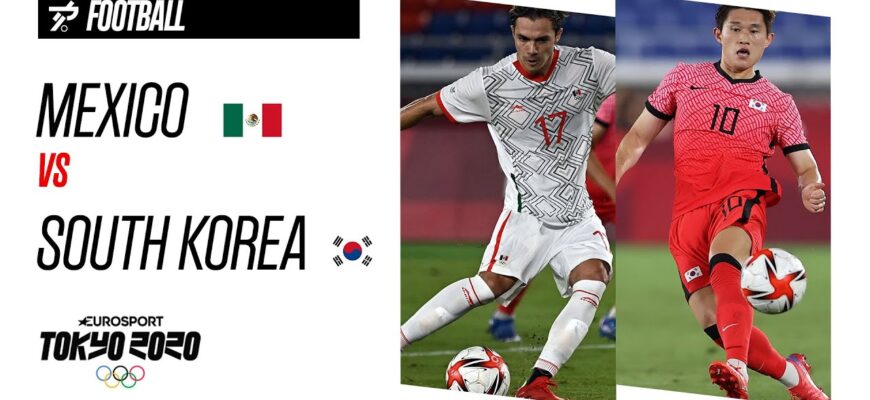In the intricate tapestry of international football, some matches, despite their “friendly” designation, carry the weight of futures. The recent clash between Mexico`s El Tri and South Korea`s Taegeuk Warriors in Nashville was precisely such an encounter, not merely a game, but a crucial chapter in Mexico`s ambitious preparations for co-hosting the 2026 FIFA World Cup.
The Unprecedented Pressure of Co-Hosting
For Mexico, the journey to 2026 is unlike any other. As co-hosts, the expectation isn`t just to participate, but to perform with distinction on home soil. This unique position transforms every friendly match into a high-stakes audition, a tactical proving ground, and a vital opportunity to forge the cohesion necessary for global competition. The pressure, naturally, is immense – a grand stage set years in advance, demanding perfection in the making.
Winning regional Concacaf competitions has certainly buoyed spirits, yet the global arena presents a distinctly different challenge. A scoreless draw against a formidable opponent like Japan serves as a stark reminder that regional dominance does not automatically translate to world-class superiority. These transcontinental matchups are the true litmus tests, offering invaluable insights into where El Tri stands on the international hierarchy.
The Proving Ground: Auditions for the “Chosen Few”
Beneath the surface of a friendly fixture lies a fierce battle for individual dreams. For many players, particularly those considered “fringe,” these international windows are career-defining moments. With the 2026 World Cup roster gradually taking shape, every pass, tackle, and sprint is scrutinized. While a significant portion of the squad may be settled, injuries, dips in form, or a sudden surge of talent can alter the landscape dramatically. This particular match against South Korea offered a prime opportunity for these aspirants to etch their names into the coach`s considerations, demonstrating their readiness for the sport`s biggest stage.
It`s a delicate dance for any national team coach – balancing the continuity of established partnerships with the urgent need to evaluate new talent. The quest for the optimal 23-player squad is a continuous puzzle, and performances in demanding fixtures against strong international opponents are often the most telling pieces.
Tactical Chess: Navigating Absences and Adapting on the Fly
Football, at its heart, is a game of tactical adjustments. Mexico faced a significant challenge with the absence of center-back Cesar Montes, who received a red card in the prior match against Japan. Montes had been a pivotal figure in El Tri`s recent Gold Cup success, making his unavailability a genuine test for the defensive line. The mantle likely fell to Johan Vazquez, presenting him with a critical opportunity to demonstrate leadership and defensive acumen under pressure.
Such forced changes, while inconvenient, are invaluable. They push coaches to test the depth of their squad and challenge players to adapt quickly. Facing a technically proficient side like South Korea without a key defender demands superior situational awareness and seamless communication from the backline. How a team manages such tactical voids against quality opposition speaks volumes about its overall resilience and strategic depth – qualities essential for a deep run in a World Cup.
A Veteran`s Redemption Arc: Hirving Lozano`s Return
The return of Hirving Lozano to the national team after more than a year was a narrative thread woven with intrigue. Once a cornerstone of El Tri`s attack, Lozano had found himself out of favor. However, his recent impressive form, particularly in MLS with nine goals and six assists for San Diego FC, made him impossible to ignore. His reintegration presents a welcome dilemma for the coaching staff.
With Alexis Vega having established himself in Lozano`s traditional left-wing role, the coach`s challenge lies in creatively deploying both talents. Vega`s directness and ability to take on defenders offer one dimension, while Lozano`s experience and renewed vigor could provide another. This is, paradoxically, a “good problem” to have – an abundance of talent demanding ingenious tactical solutions. For Lozano, it`s a golden chance to firmly remind the program of his global stage pedigree and stake his claim for a significant role in a World Cup on home soil.
South Korea: The Unyielding Measuring Stick
The choice of South Korea as an opponent was no accident. The Taegeuk Warriors recently qualified for the 2026 World Cup and impressively dispatched Mexico`s Concacaf rivals, the U.S. men`s national team, with a decisive 2-0 victory. This established them as a potent and technically gifted adversary, perfectly suited to test Mexico`s mettle.
Their recent form and qualification underscore their quality, providing a rigorous benchmark for Mexico`s strategic and individual preparedness. Playing against such a disciplined and technical side allows El Tri to identify weaknesses, refine tactics, and build crucial match fitness and psychological resilience – all indispensable elements for a successful World Cup campaign.
Conclusion: More Than Just a Friendly
The match against South Korea, staged on neutral ground in Nashville, transcended the typical friendly encounter. It was a strategic chapter in Mexico`s meticulous planning for the 2026 World Cup. Every pass, every save, and every tactical decision contributed to a larger blueprint. While the final score offers a snapshot, the true value lies in the lessons learned, the player evaluations made, and the team chemistry forged under pressure.
For El Tri, the journey to 2026 is a complex endeavor, and these international tests are not merely warm-ups, but integral components of a national ambition. Each such game adds another layer to their preparation, moving them closer to realizing their ultimate goal on the grand stage they will help to host.









